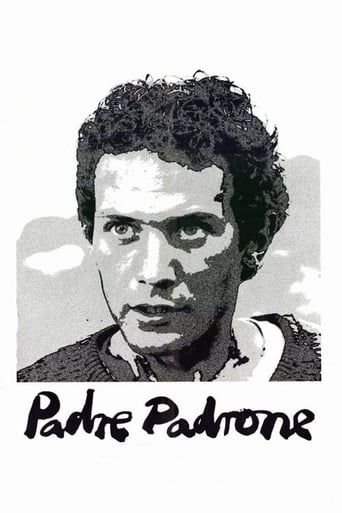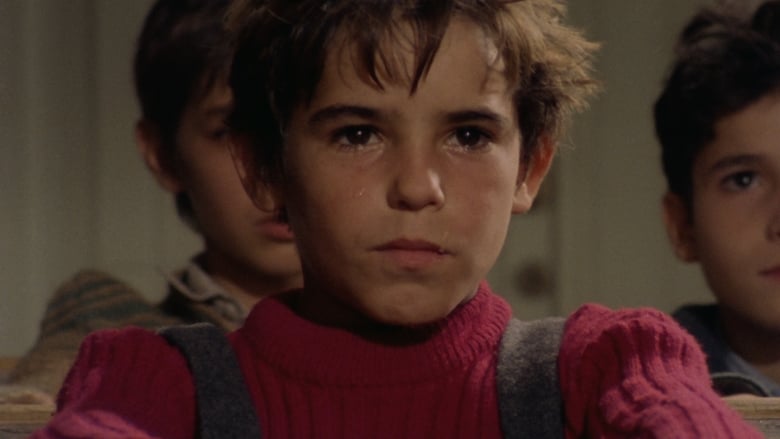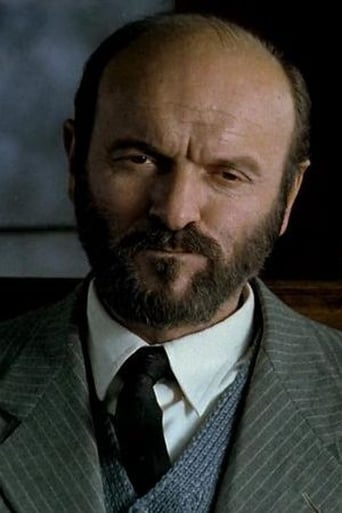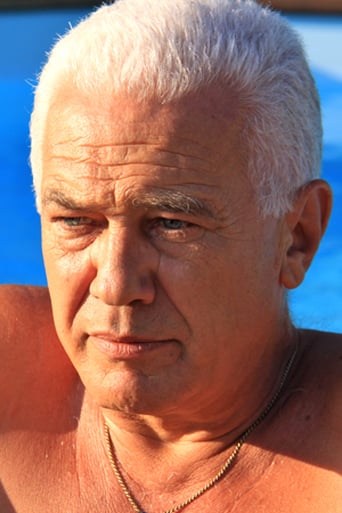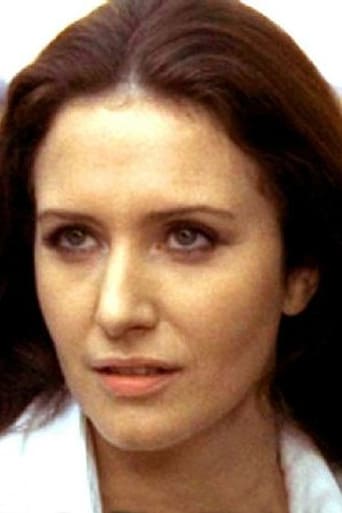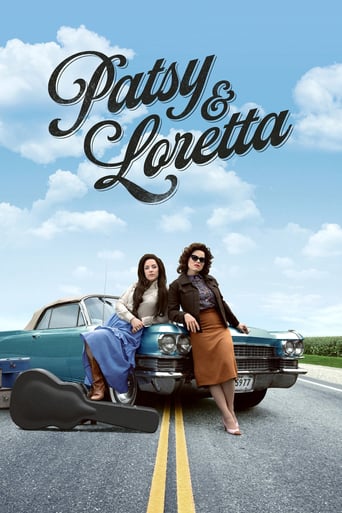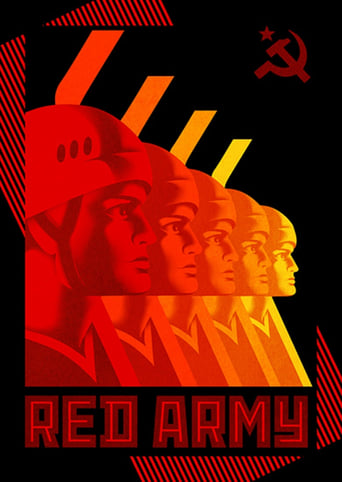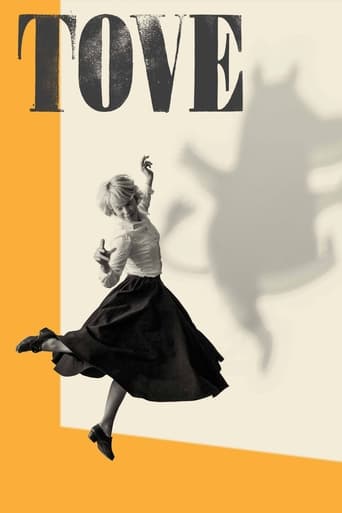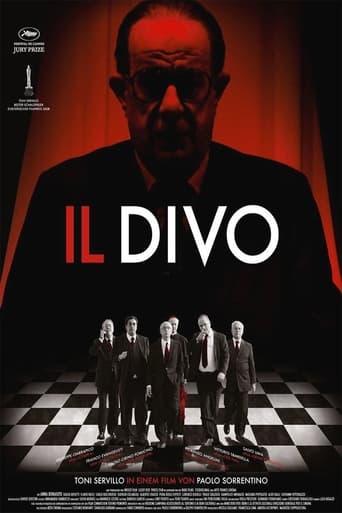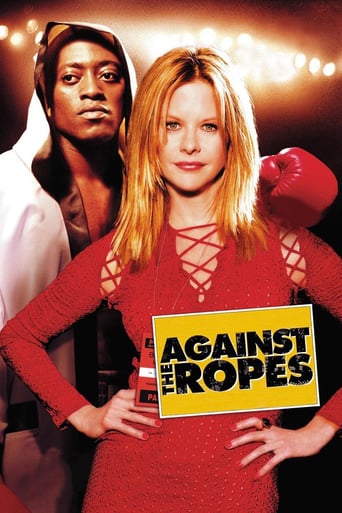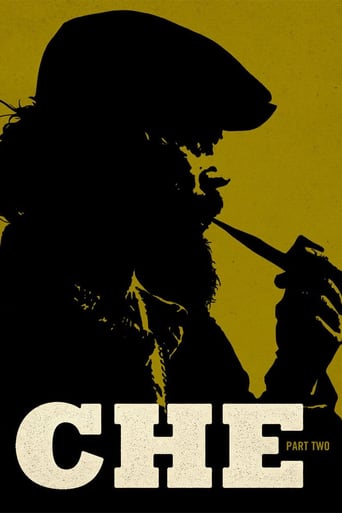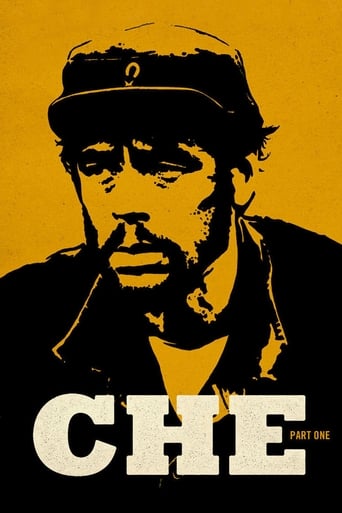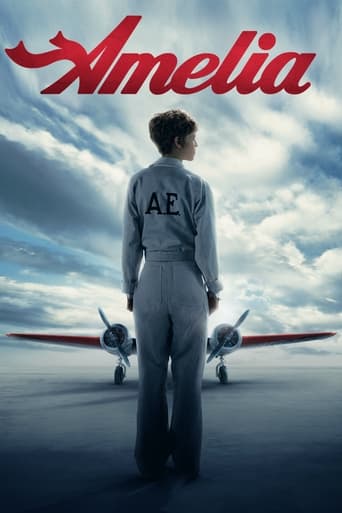Padre Padrone (1977)
The true story of the life of Gavino Ledda, the son of a Sardinian shepherd, and how he managed to escape his harsh, almost barbaric existence by slowly educating himself, despite violent opposition from his brutal father.
Watch Trailer
Cast


Similar titles
Reviews
Excellent but underrated film
There's no way I can possibly love it entirely but I just think its ridiculously bad, but enjoyable at the same time.
I enjoyed watching this film and would recommend other to give it a try , (as I am) but this movie, although enjoyable to watch due to the better than average acting fails to add anything new to its storyline that is all too familiar to these types of movies.
Actress is magnificent and exudes a hypnotic screen presence in this affecting drama.
"Padre Padrone" ("Father Master" in Italian) is inspired from Gavino Ledda's autobiography. The book provides invaluable insight on living conditions and bigger-than-life anecdotes. Remarkably, the movie transforms this authentic account into a metaphor on traditions, indigence, knowledge, emancipation and growing up.The movie only adapts selected passages of the book as usual (notably because of length), but interestingly adds a few scenes: men arguing and promising to leave Sardinia during the religious procession, Gavino peeing from the truck taking them away, Gavino and Cesare speaking Latin in the tank, etc. Logically, these scenes have a strong visual and symbolic impact. Also, the father's role is more developed in the movie and we perceive how he thinks: he is a victim of the system like Gavino, even though they fight back differently. *** WARNING: CONTAINS SPOILERS ***The metaphorical dimension is first expressed by the presence of Ledda himself at the beginning and at the end: the movie is hence put into perspective; we understand it carries a message. The actual life of Ledda is almost an allegory in itself: mostly alone when he was a child with limited communication possibilities, illiterate, he ultimately becomes a famous linguist.The movie illustrates this journey with different symbols. First with silence: a bell rings when he is alone in the mountains, but also in military class. He hence remains lonely despite being surrounded by people, because he does not understand. Silence is also depicted by the fact Gavino cuts his lips twice: once to pretend he was attacked, once precisely to remain mute.Progressively, Gavino breaks free from his muteness and communicates. This initially comes through non-verbal means: music. He initially tries to play Strauss' waltz on his accordion and another shepherd in the mountain answers with a flute. He then catches it on his radio, and thus passes the army test. Later on, he whistles Mozart's clarinet concerto after his father destroys the radio.He eventually learns Italian and articulated communication. He finally is able to answer back to his father. Interestingly, the speech he voices to him from his bed is memorised: this reminds of the father's speech at the beginning in school, which is memorised as well. The meaning seems to be: one can progress and learn, but can never completely relinquish one's heritage. Other illustrations of this topic: the movie starts and ends at school, when Gavino is young; Gavino does not understand the class at the army, as his father did not understand the olive purchaser's speech; Gavino recites word from the dictionary, as his father recited multiplications; when Gavino comes back to the village, he is afraid his father will strike him, just like he was before in the mountains; his father forbids him to eat and locks the food closet, just like he did in the mountains; Ledda says at then end: "I might abuse my new privilege, as my father did".Indeed, everywhere traditions are enduring and difficult to escape from. In the kitchen, the father wants to strike the adult Gavino with a stick just like the shepherd stroke Sebastiano in the mountains. After the father violently hit the young Gavino, he sings a Sardinian tune which will be repeated during the religious procession when Gavino is adult. Additionally, at this fabulous procession, the young men carry a heavy statue that we visualise as the father: they are dominated by traditions in different forms (religion, father, master).The resulting general psychological tension is visually expressed by instability: even when shots are fixed, the camera (apparently hand-held) always moves slightly. Traditions are a succession of prohibitions: don't leave the sheepfold, don't talk to other shepherds, don't eat unless you work, don't speak Sardinian in the army. Growing up, more than transgressing these, is being able to bypass them: respectively becoming an adult, learning music, studying, learning Italian.The movie has a universal dimension. Nobody bears a name, apart from Gavino, Cesare (the true friend) and Sebastiano (the mountain legend): the father, the mother, Gavino's sisters and brothers, other children and adults. This lack of identity is highlighted by the young men during the religious procession: "We have no name, we are just the padrone's this and that". It is not just Ledda's story: we see other children and adults with the same issues and desires. The shots on the children's faces at the beginning and at the end (with their inner thoughts at the beginning) are striking. These thoughts are horrible, like the ones Gavino's family has near Sebastiano's deathbed, yet we understand them: it is how necessity forces people to think. Some scenes are spectacular, for instance when the father fights with Gavino in the kitchen. It plays on different levels. Abstract: close shot on hands washing, on a hand hitting the red table to have food. Symbolic: father and son fight in obscurity, expressing their subconscious desire to get rid of each other; it is the dark conflict between tradition and emancipation. Ironic: they fight as Mozart's beautiful music plays; afterwards, the mother sings. Ambiguous: when Gavino fetches his suitcase afterwards, he first ignores his father, then puts his forehead on his leg. He still loves him despite everything. And his father first wants to caress his head, then strike it. We unexpectedly move on to the next scene, so will never know what actually happened, but it does not matter: the father's emotion stays suspended between love and hate. The following shot is magnificently nostalgic: we silently drive away from the village, looking backwards. This subjective view echoes the scene when Gavino previously left at the back of the truck: we now leave with him, apparently forever. In summary, "Padre Pardone" is gripping, with social, psychological and symbolic reach. Be warned, it is violent: harsh living conditions, harassment, child abuse, bestiality. However, it progressively delivers an optimistic message: through education and hard work, one can escape one's condition.
Vittorio and Paolo Taviani are surely one of the most important Italian directors ever and just like all the great masters they often have their not so brilliant movies, but "Padre Pardone" certainly belongs to the best they ever made. It's all based on a true story and sometimes people tend to forget that there are places that God forget. In an agricultural area in Sardinia some folks pretend it's better to take care of the sheeps rather than scoring well at school. The young Gavino (Fabrizio Forte) goes to his school but one day he's father comes in the classroom telling him that his schooldays are over and that it is time to take up his duty as shepherd. The brothers Taviani are masters in filming the useless factors of the job as we see a young boy who absolutely has no interest in the job he got by his father, and we see some explicit scenes in where the almighty father beat his children. Schoking that's for sure and if the Gavino grows older we see his hunger to learn something (the poor boy couldn't read) as soon as he must enter the world of the army which is in total contrast with the world of the hills where sheep run. The story itself is rather hard to bear and you often shake your head by disbelief but still the Taviani-brothers are opting for a sober and poetic approach of the problem that it looks like you're viewing some touristic documentary of an area that God forgot. "Padre pardone" is certainly the kind of movie that will have both its lovers and enemies but having said that, you know that "Padre Pardone" belongs to the classic section of the Italian cinema that will never be forgotten.
Some of the complaints may due to a poor tape transfer. It looked quite nice as a movie. However, being about poor people, don't expect gorgeous costumes.Since the film is honest and somewhat brutal in its depiction of peasant life, it is not for the weak of stomach or for children.It moves at a somewhat leisurely pace and some of the filmic conventions are overdone (the talking sheep and the swelling music in particular).
This move was pure agony to watch and totally devoid of any redeeming entertainment value at all. The endless scenes of extreme child abuse, masturbation and bestiality made this an experience that will scare me for life. A root canal would be preferable entertainment. Anyone who enjoys this movie has to be sick.My expectation was a story about a boy overcoming child abuse to become a successful writer. Only about 10 minutes is spent on the `overcoming' with the rest of the time obsessed on the agony. This could have been a great movie if it focused on the metamorphosis of an abused, illiterate Shepard into a literate professor and writer.My personal regret is that I fell for the `Cannes Golden Palm' label again. `Art is in the eye of the beholder' and this beholder sees very little artistic value in this movie. This movie had awful sound, poor cinematography, bad set decoration and horrible musical score. It is hard to imagine this movie being better than some of the other movies of this year like Star Wars, Close Encounters of the Third Kind, Equus, The Goodbye Girl and Annie Hall. Cannes went way out of the way to avoid a good movie for their award. My observation is that Cannes is a bunch of snobs who never give anything to any movie that can be remotely called entertaining.

